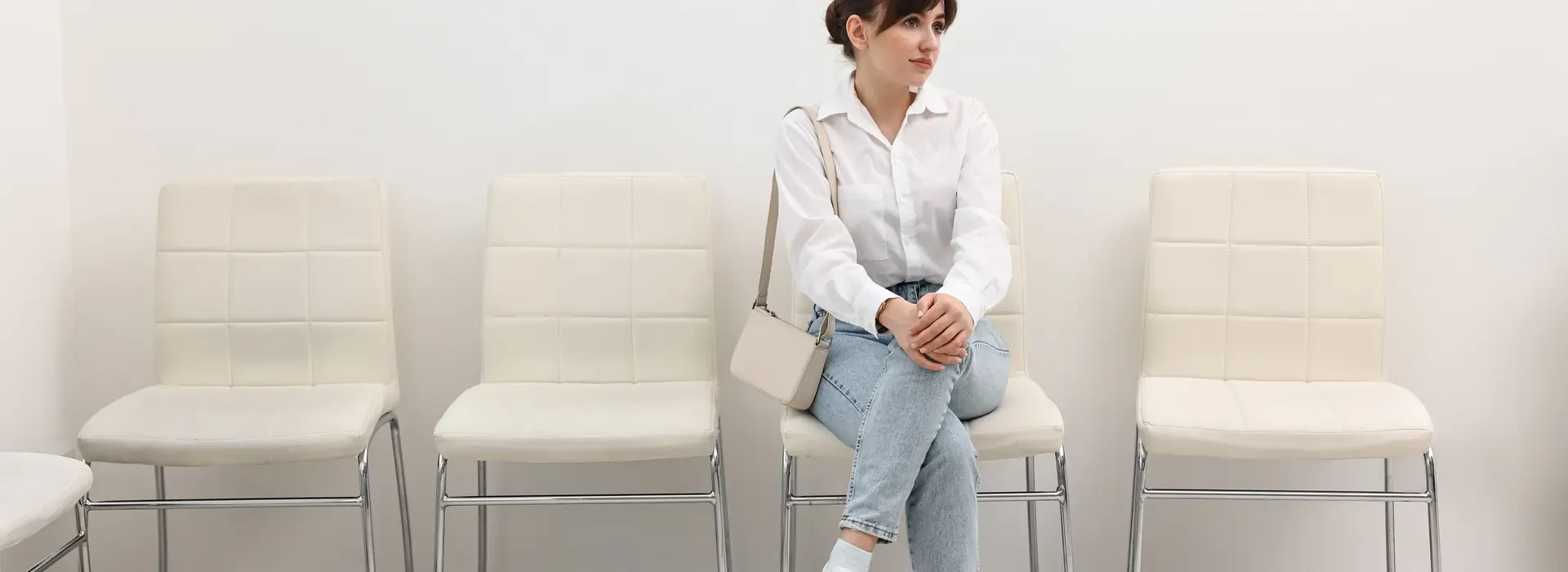Residential therapy for addiction provides a structured and supportive environment where you can focus on your recovery journey away from daily triggers. In a safe and compassionate setting, you can take part in a treatment programme that blends medical support, therapy, and holistic care.
What Is Residential Therapy for Addiction?
Residential therapy for addiction means living at a treatment centre full-time, where you get constant expert care and compassionate support. These facilities provide structured routines, therapeutic activities, and access to qualified staff who understand that addiction recovery takes time, patience, and the right treatment approach.
In this type of rehabilitation, the focus is on removing you from environments linked to your addiction problems and creating space for healing. You’re encouraged to take part in one-to-one therapy, group therapy sessions, and skill-building activities that promote health and emotional stability.
Core Principles of Residential Addiction Rehab
Residential programmes are built on the idea that you need a safe, secure place away from old habits and triggers. You stay at the centre for a set period, from a few weeks to several months, depending on your needs and personal circumstances.
Daily schedules often include one-to-one therapy, family therapy, and group sessions, along with activities that improve overall well-being. Staff help you understand that addiction is not a personal failure, but a health issue that requires comprehensive treatment and support.
The team may include doctors, nurses, counsellors, and addiction specialists who work together to personalise your care. This collaborative approach promotes safety, builds new habits, and ensures you’re supported throughout your path to recovery.
Types of Drug and Alcohol Addictions Treated
Residential rehab centres can help with many types of addiction, including drug addiction, alcohol addiction, prescription drug misuse, and other substance addictions. In some cases, drug and alcohol addiction occurs alongside mental health conditions, requiring integrated care.
Each type of treatment is tailored to your circumstances. For example, alcohol rehab often starts with detox and medical monitoring, while drug addiction treatment might focus on detoxification, medication, and behavioural therapies.
If you’re struggling with drug or alcohol issues, these programmes can also address co-occurring conditions, ensuring your physical, emotional, and psychological health are part of your addiction recovery.
Comparison with Outpatient Alcohol and Drug Treatment
Outpatient therapy allows you to live at home while attending sessions, whereas inpatient treatment in a residential rehab removes you from potential triggers. If you face severe withdrawal symptoms, have a history of relapse, or need more structure, inpatient or residential treatment is often more effective.
Outpatient care may suit those with strong home support and milder addictions. However, for many, private rehab or private addiction rehab offers the security, structure, and quality of care necessary for meaningful change.

Key Components of Residential Rehab Centres
Residential treatment delivers intensive, structured care that addresses both addiction and related issues. You benefit from constant supervision, emotional support, and access to therapies suited to your needs.
Therapeutic Interventions
You take part in a blend of therapies, often including individual, group, and family sessions. These settings focus on the root causes of substance use, such as trauma, anxiety, or depression. Group therapy is common and helps you build relationships with others who understand your struggles.
Cognitive Behavioural Therapy (CBT) and other evidence-based methods are key parts of treatment. You may also attend workshops or classes to learn coping skills, problem-solving, and emotional regulation strategies. Often, counselling for dual diagnosis helps manage other mental health issues alongside addiction.
Many programmes use holistic tools like art therapy, mindfulness, and relaxation training. These are designed to reduce stress and help you express emotions safely. This wide approach means your emotional, mental, and social needs are addressed as part of your recovery journey.
Structure of Daily Life
Full-time residential settings provide a well-organised routine. Your day will include set meal times, planned activities, and structured therapy sessions. These routines create stability, making it easier for you to focus on recovery.
Staff supervise you 24 hours a day. There are clear rules around wake-up times, chores, and attending meetings. Daily schedules may include group discussions, one-to-one therapy, and skills training.
Weekends and evenings often have safe leisure activities or support group meetings. This structure keeps your mind and body active while helping you adapt to sober living. Having a predictable day helps reduce stress and prevents the boredom that can trigger cravings.
Medical Support Services
Many people in treatment need medical support, especially during the first weeks. Licensed staff monitor your progress and help manage withdrawal safely. This is important if you are coming off alcohol, opioids, or other substances where withdrawal can be risky.
You may have access to doctors, nurses, and addiction specialists who work together to track your health. They can provide medications to ease symptoms or manage mental health problems. Regular health checks are routine, helping spot any concerns before they become serious.
Facilities offer medication-assisted treatment when needed, along with help for co-occurring medical or mental health issues. Nurses and clinicians are there around the clock in most high-quality centres.
Benefits and Outcomes of Residential Therapy
Residential therapy gives you the tools and environment to focus solely on healing. Many people find that this approach increases their chances of achieving a long-term recovery.
Long-Term Recovery Rates
Research shows residential rehabilitation often leads to better outcomes compared to non-residential options. With 24/7 compassionate care, you’re shielded from triggers while building healthy coping skills.
Being surrounded by others with similar experiences fosters community, while consistent addiction support helps you transition into everyday life. This community-based element is often cited as key to lasting recovery.
Personalised Care Approaches
During residential therapy, care is tailored to suit your specific situation and needs. You will have an individual assessment at the start, and a treatment plan will be made just for you. This plan could include medical care, therapy, and support for your mental health.
Facilities often provide a wide range of therapies. These might include CBT, family counselling, and group meetings. This mix of support helps you to understand why you use substances and teaches you healthy ways to deal with stress or triggers.
You also have regular check-ins and reviews with professionals. This helps to track your progress and adjust your treatment if needed. By getting support that matches your unique needs, you have a better chance of making lasting changes and staying healthy.

Selecting the Right Drug and Alcohol Rehab
When seeking a leading private rehab clinic, consider more than just location or cost. Accreditation, staff qualifications, and programme structure can significantly affect outcomes.
Assessment and Admission Processes
A detailed assessment should occur before you are admitted. This assessment helps staff understand your substance use, mental health history, and any medical conditions. You might answer questions about your drug or alcohol use, family background, and past treatment experiences.
Look for facilities that offer a personalised admission plan. This means your care plan is based on your specific needs instead of using a generic approach. Some centres even involve family members to better support your progress.
Many reputable programmes also provide a clear outline of what to expect during your stay. Ask for a written summary of your treatment plan and timetable. This will help you know exactly what to prepare for and can help reduce anxiety.
Accreditation and Staff Qualifications
Only consider residential facilities that are fully accredited by official bodies. Accreditation means the centre meets strict standards for safety, care quality, and staff training. You can usually check this on the centre’s website or by asking staff directly.
Qualified staff are essential. A good centre will have counsellors, doctors, and nurses with relevant experience and up-to-date certifications. Many will have a mix of psychiatric specialists, addiction counsellors, and clinical support staff.
Don’t hesitate to request information about team members’ qualifications. Reputable centres are transparent about their staff’s credentials and experience. This helps ensure you receive informed and safe care from the start.
Achieve Lasting Recovery with Liberty Home Clinic
You don’t have to keep fighting this battle on your own. At Liberty Home Clinic, we see your strength, your story, and your potential for change. Our team provides addiction treatment with compassionate care and genuine connection.
Here, every treatment plan is shaped around your circumstances, combining expert medical care, proven therapies, and holistic support. We’ll be beside you through every step of your recovery journey, so you have the tools and encouragement to keep moving forward.
Hope isn’t lost. Reach out for help today.
Frequently Asked Questions
How long does an inpatient rehabilitation course typically last?
Length of stay can vary. Many residential rehab programmes last between 30 to 90 days. Some people stay for shorter or longer periods depending on their needs and progress. It's also possible to have extended stays of several months or even up to a year in some cases.
Can family members participate in the treatment process at residential rehab facilities?
Many residential rehab centres encourage family involvement. Family therapy sessions or educational workshops can help relatives understand addiction and learn supportive strategies. Sometimes, visits or structured family days are also part of the programme. Participation differs across centres, so you should check the specific policies of the facility you're considering.
What aftercare options are provided following discharge from a residential addiction treatment centre?
After leaving residential rehab, you usually have access to aftercare services. These can include ongoing counselling, support group meetings, relapse prevention planning, and regular check-ins. Centres may offer structured aftercare programmes or refer you to community services to help maintain progress and prevent relapse. Consistent follow-up care is often recommended.
Is residential rehab suitable for all types of addiction?
Not always. While most residential rehab programmes cater to a broad range of types of addiction, including alcohol, drugs, and behavioural issues, some facilities specialise in particular areas, such as prescription drug misuse or dual diagnosis care. An initial assessment will help determine whether a residential treatment approach is right for your situation.
How is progress monitored during residential treatment?
Progress is tracked through regular one-to-one reviews, therapy session feedback, and health checks. Your treatment plan may be adjusted based on these assessments to ensure you’re receiving the most effective addiction treatment for your needs.
What role does nutrition play in residential addiction recovery?
Good nutrition supports both physical healing and mental well-being. Many treatment programmes include balanced meal plans designed to restore your body’s health after substance misuse. Some facilities also offer nutrition education so you can maintain healthy habits after leaving rehab.







